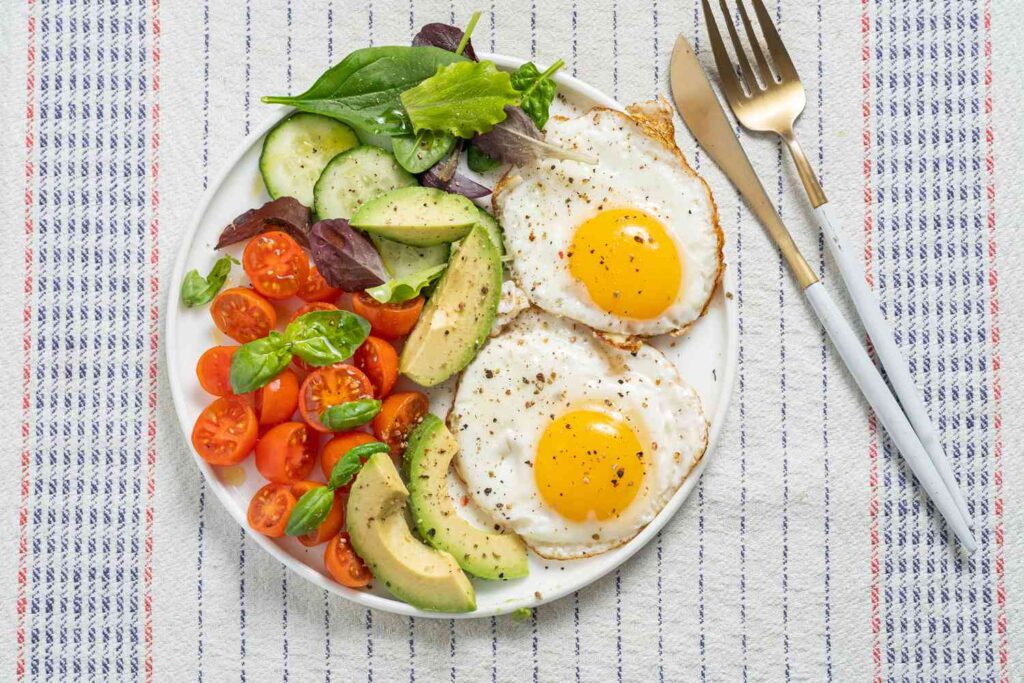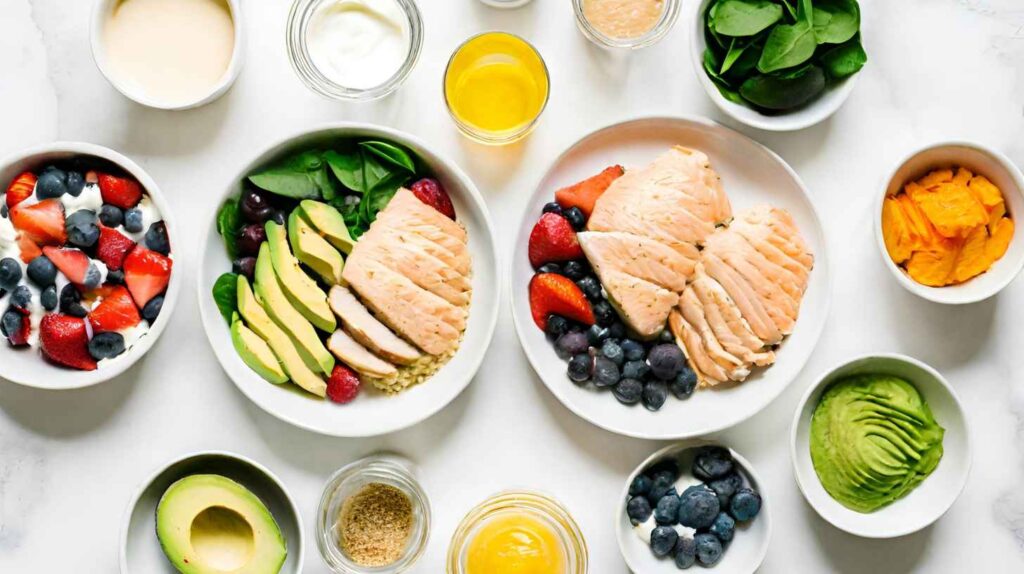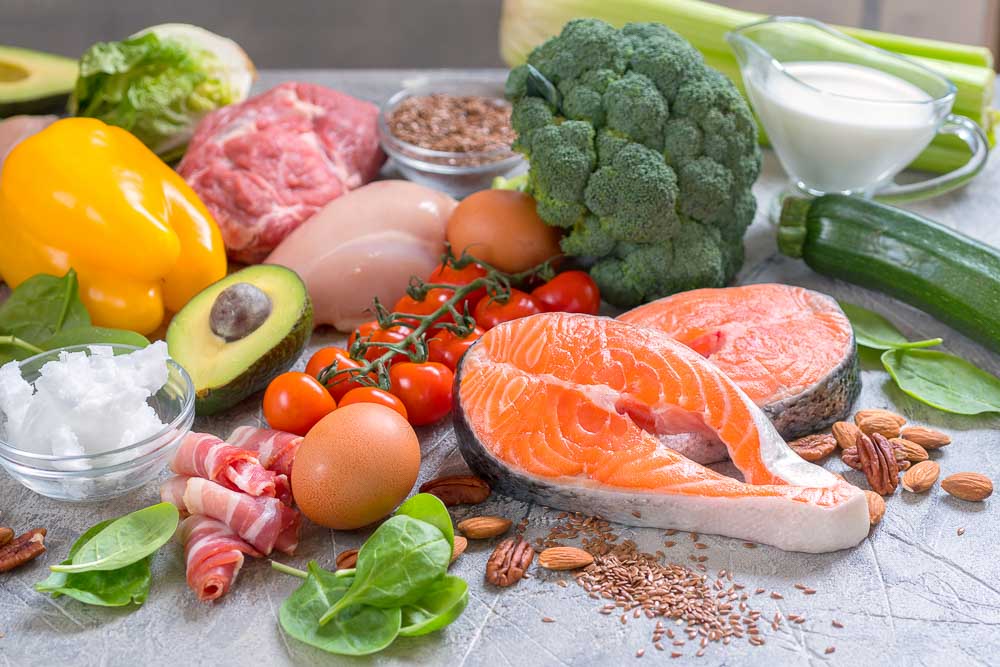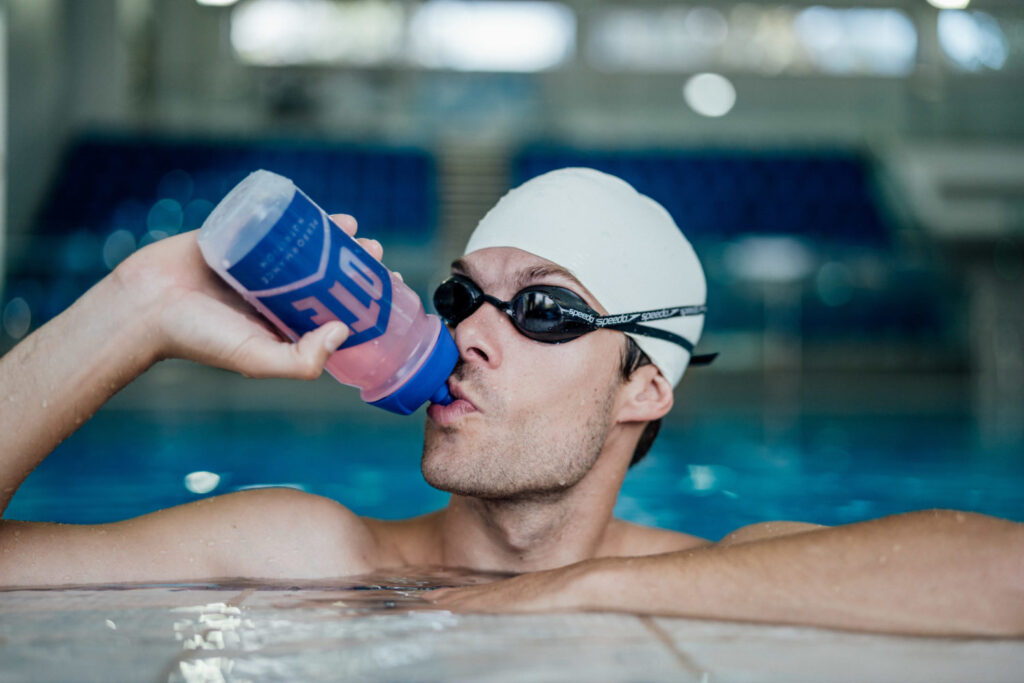In the world of competitive swimming, nutrition plays a pivotal role in performance. This guide dives into the essentials of a swimmer’s diet, focusing on what to eat, when to eat, and how to stay hydrated. By understanding the key components of a good diet, swimmers can optimize their energy levels, enhance recovery, and improve overall performance in the pool.
Key Takeaways
- A balanced diet including carbohydrates, proteins, and healthy fats is crucial for swimmers.
- Timing meals and snacks strategically around training sessions maximizes performance and recovery.
- Proper hydration is essential before, during, and after swimming to maintain peak physical condition.
- Incorporating a variety of foods ensures all nutritional needs are met, supporting both health and performance.
- Consulting with a sports dietitian can provide personalized dietary guidance to meet individual goals.
What’s on Your Plate? Crafting the Ideal Swimmer’s Diet
Balancing Macronutrients
Swimmers should focus on a balanced diet that includes carbohydrates, proteins, and healthy fats. Carbohydrates are the primary fuel for swimmers and should make up about half of their diet. Protein is essential for muscle repair and growth, with sources like lean meats, fish, eggs, and low-fat dairy recommended.

Timing Your Meals for Optimal Energy
To maximize performance, timing your meals is crucial. Eating a balanced meal 2-3 hours before swimming provides the necessary energy without the discomfort of a full stomach. Post-training, aim to eat within 30 minutes to aid recovery.
Choosing Quality Over Quantity
It’s not just about eating more; it’s about eating better. Opt for whole, unprocessed foods to get the most nutrients. Include a variety of vegetables, fruits, whole grains, and lean proteins in your diet to cover all nutritional bases.
Remember: Quality trumps quantity when it comes to fueling your body for swimming.
Hydration Station: Why Water Wins for Swimmers
The Importance of Staying Hydrated
Hydration is absolutely crucial for swimmers, not just for maintaining performance but also for ensuring overall health. Staying hydrated helps regulate body temperature, keeps joints lubricated, and aids in transporting nutrients to give you energy. Remember, even a small dip in hydration levels can lead to decreased performance in the pool.
Best Practices for Fluid Intake
To keep hydration levels optimal, start your day with a glass of water and continue drinking throughout the day—not just during practice. Aim for about 2-3 liters per day, but this can vary based on your activity level and environmental conditions. Here’s a quick guide:
- Before practice: 500ml of water
- During practice: 150-200ml every 15-20 minutes
- After practice: Replenish based on the intensity and duration, typically 500ml
Hydration Before, During, and After Swimming
It’s essential to tailor your hydration to the phases of your swimming routine. Before diving in, ensure you’re well hydrated. During your swim, keep a bottle at the poolside and take regular sips. After you finish, rehydrate to compensate for any fluid lost through sweat. This routine not only boosts your performance but also aids in quicker recovery.
Pre-Swim Fuel: What to Eat Before You Dive In
Ideal Pre-Swim Meals
Before you dive into the pool, it’s crucial to fuel up with the right kind of meal. High-carbohydrate and moderate-protein meals are your best bet to ensure sustained energy throughout your swim. Think oats with berries and a dollop of peanut butter, or perhaps a sweet potato with a side of Greek yogurt. These meals are not only delicious but also packed with the nutrients needed to boost your performance.

Understanding the Role of Carbohydrates
Carbohydrates are the main fuel source for swimmers, especially when engaging in intense or long-duration swims like the butterfly stroke or backstroke. Aiming for a meal rich in carbs will help you maintain energy levels and swim faster. Foods like brown rice, lentils, and fruits are excellent choices to consume about 1-2 hours before your swim.
Quick and Easy Pre-Swim Snacks
If you’re short on time, quick snacks can also provide the necessary energy boost. Bananas, cereal with milk, and energy bars are perfect for those last-minute munchies before you hit the water. These snacks are easy to digest and provide a quick source of energy, helping you to swim better and achieve those lap records.
Recovery Meals: Refueling After the Swim
Post-Swim Nutrition Essentials
After you’ve given it your all in the pool, your body needs the right nutrients to recover and prepare for the next challenge. It’s crucial to refuel with a mix of carbohydrates for energy replenishment and proteins for muscle repair. Don’t forget to rehydrate with plenty of fluids to replace what you’ve lost through sweat.
Proteins and Carbs for Recovery
A balanced recovery meal should include both proteins and carbohydrates. Think about a dairy-based fruit smoothie or a chicken and veggie wrap as perfect post-swim options. These combinations help restore muscle tissues and replenish energy stores, making them ideal for recovery.

Hydration and Electrolyte Replenishment
Rehydrating after swimming is non-negotiable. Along with water, ensure you’re getting electrolytes to replace those lost during your swim. A simple way to manage this is by including foods like bananas or electrolyte-enriched drinks in your recovery plan.
Remember, it’s essential to consume a recovery meal or snack soon after swimming, especially if you have another training session or race the following day.
Snack Attack: Smart Snacking for Swimmers
Healthy Snack Ideas
Swimmers need snacks that are as dynamic as their swim schedules. Opt for whole foods like fruits, nuts, and yogurt to keep energy levels high. Here’s a quick list of swimmer-friendly snacks:
- Fresh fruits (bananas, apples, berries)
- Nut mixes (almonds, walnuts, cashews)
- Greek yogurt with honey or granola
- Energy bars that are low in sugar
Balancing Nutrients in Snacks
It’s crucial to balance macronutrients to support a swimmer’s energy needs. Carbohydrates are great for quick energy, while proteins help with muscle repair. Fats should not be overlooked as they provide long-lasting energy. Aim to include a mix in your snacks to cover all bases.
Snacks on the Go
For those long meet days or intense training sessions, having portable and non-perishable snacks is a game-changer. Pack options like whole-grain crackers, low-fat cheese sticks, or PB&J sandwiches. These can be easily stored in your swim bag, ensuring you’re always prepared, no matter where your swim time log takes you.
Navigating Nutrition: Tips for a Sustainable Swimmer’s Diet
Meal Planning Strategies
Organizing your meals is not just about avoiding hunger; it’s about ensuring you have the right fuel at the right time. Start by planning your meals around your training schedule. Incorporate a variety of foods to cover all macronutrients and micronutrients essential for your body’s recovery and performance.
By planning ahead, you can avoid the common pitfall of resorting to less nutritious, convenient options.
Incorporating Variety in Your Diet
It’s easy to fall into a routine of eating the same foods, but variety is key to a balanced diet. Try to include different lean proteins, carbohydrates, and fats, as well as a wide range of fruits and vegetables. This not only helps in covering all nutritional bases but also keeps mealtime interesting and enjoyable.
Consulting with a Sports Dietitian
Every swimmer’s body and dietary needs are unique. Consulting with a sports dietitian can provide you with a tailored nutrition plan that supports your specific training and recovery needs. They can help you understand the importance of personalized nutrition and guide you in making informed choices about supplements and meal timings.
- Remember, a swimmer’s diet plan emphasizes personalized nutrition, hydration, pre/post-workout meals, and supplements for optimal performance and weight loss.
The Power of Supplements: Do Swimmers Need Them?
When to Consider Supplements
While a balanced diet should always be the first line of defense, there are times when supplements can play a crucial role in a swimmer’s nutrition plan. If you’re pushing your limits regularly or have specific dietary deficiencies, supplements might be beneficial. It’s essential to consult with a healthcare professional before starting any supplement regimen.
Choosing the Right Supplements
Selecting the right supplements involves understanding what your body needs to perform at its best. Look for products that are third-party tested for purity and efficacy. Common supplements for swimmers include multivitamins, omega-3 fatty acids, and protein powders.

Natural Alternatives to Supplements
If you prefer to steer clear of processed supplements, there are plenty of natural alternatives. Foods like chia seeds, flaxseeds, and walnuts are great sources of omega-3s, while lean meats and legumes can provide the necessary protein boost. Incorporating a variety of nutrient-dense foods can often provide the same benefits as supplements.
As swimmers constantly seek ways to enhance their performance, the question of whether supplements are necessary often arises. At Swim Time Log, we delve into the benefits and considerations of using supplements for swimmers in our latest article, ‘The Power of Supplements: Do Swimmers Need Them?’. For a deeper understanding and expert advice, visit our website and explore our comprehensive guide on nutrition and supplement use in swimming.
Conclusion
So, my fellow swimmers, as you set your sights on new lap records and personal bests, remember the power of proper nutrition. It’s not just about what we eat, but how we fuel our bodies to become unstoppable forces in the pool. Embrace the swimmer’s diet and nourish yourself for success. Dive in, fuel up, and let your swimming journey reach new heights!
Read more: Eating Like a Champion: The Professional Swimmer Diet Explained
AUTHOR
Sang Nguyen
Sang Nguyen is a former national swimmer for Vietnam who has transitioned into coaching. With a passion for fostering a healthy swimming community and connecting like-minded individuals,......Read More
BLOG
Maybe You Are Interested
Good Swim Meet Snacks: What to Eat for Optimal Performance
Good nutrition is crucial for swimmers to maintain energy, recover quickly, and perform at their...
Read More...Optimizing Your Performance: The Best Diet for Swimming Training
Optimizing your performance in swimming is not just about rigorous training; it’s equally crucial to...
Read More...Achieve Peak Performance with This Diet Chart for Swimmers
Whether you’re a novice or an expert swimmer, understanding the right diet is crucial for...
Read More...Eating Like a Champion: Exploring the Diet of Michael Phelps
Michael Phelps, renowned for his Olympic triumphs, has a diet as extraordinary as his swimming...
Read More...Muscle Gain for Swimmers: Tailoring Your Diet for Strength
Swimming is a demanding sport that requires a tailored approach to nutrition to support muscle...
Read More...A Comprehensive Diet Plan To Gain Weight For Swimmers
Swimming is a demanding sport that requires meticulous attention to nutritional needs to optimize performance,...
Read More...